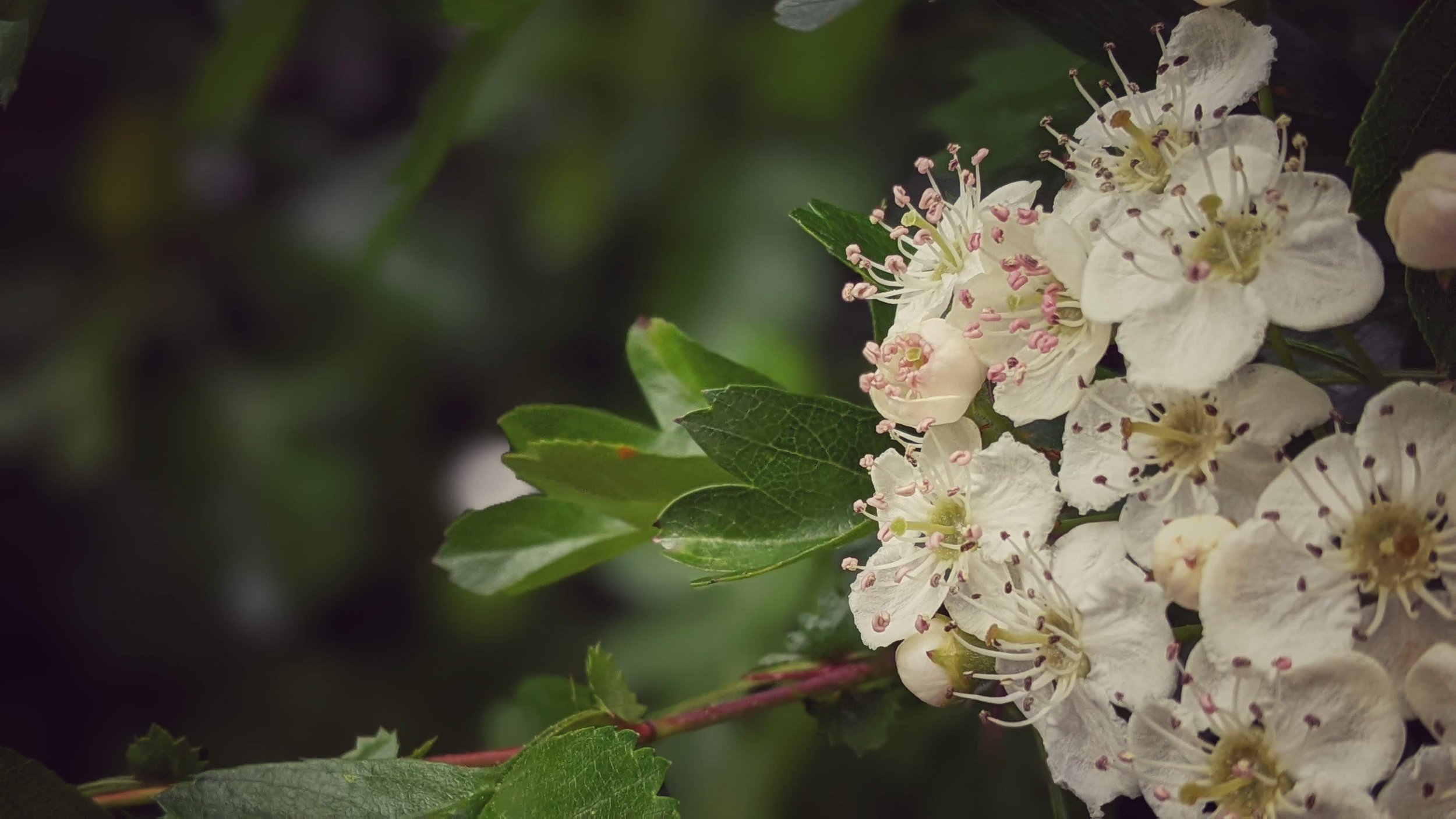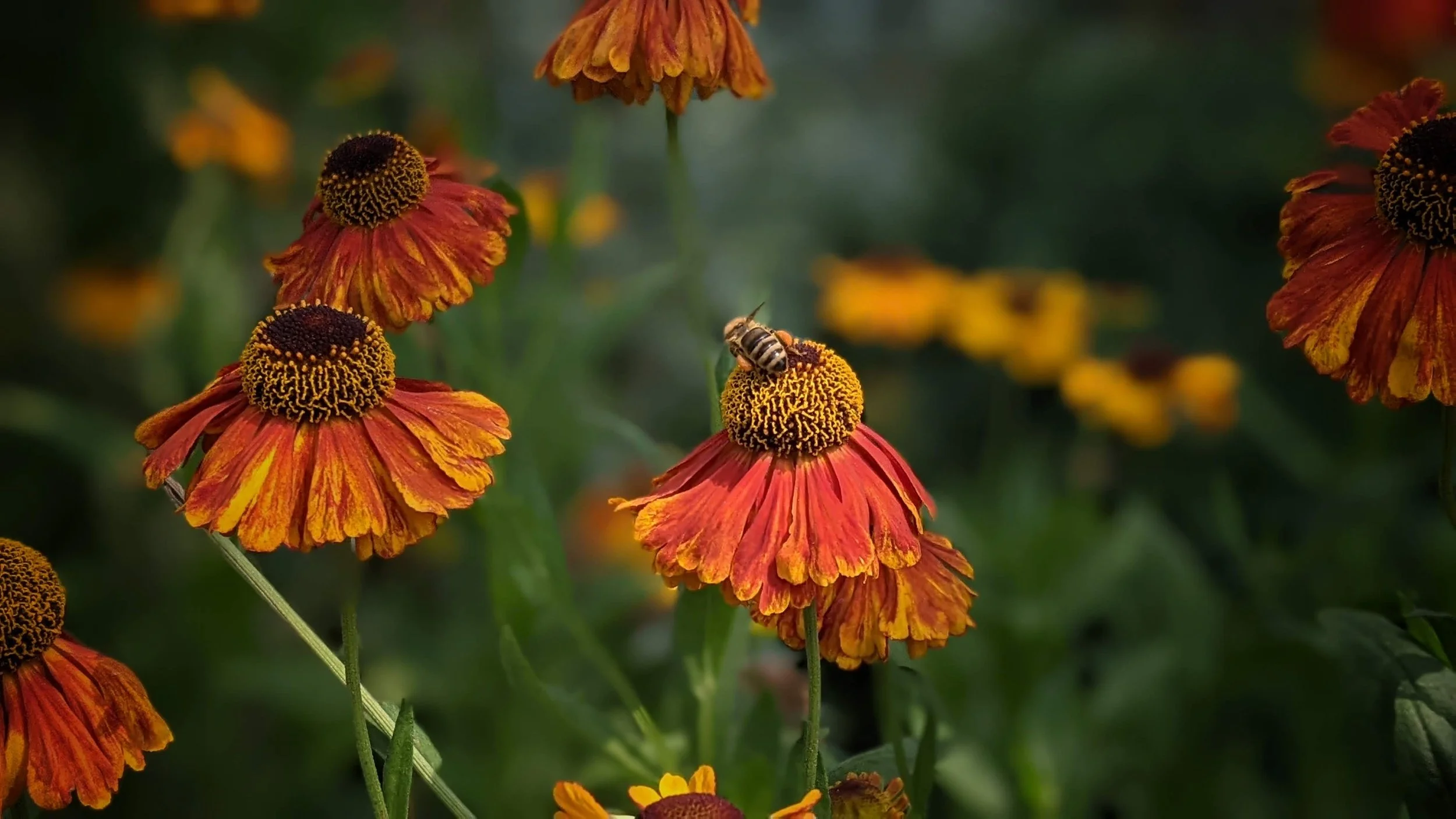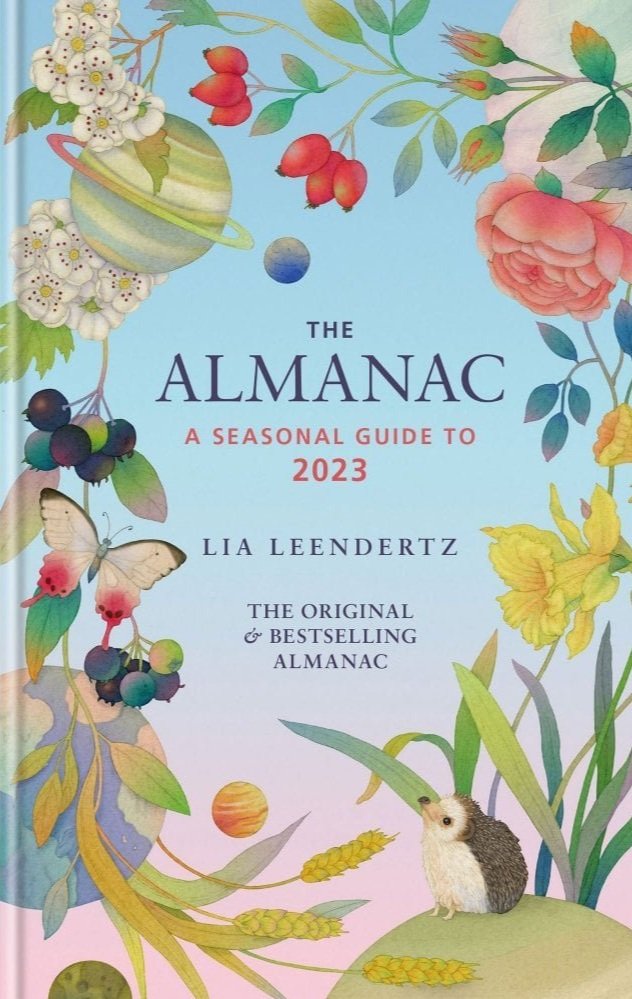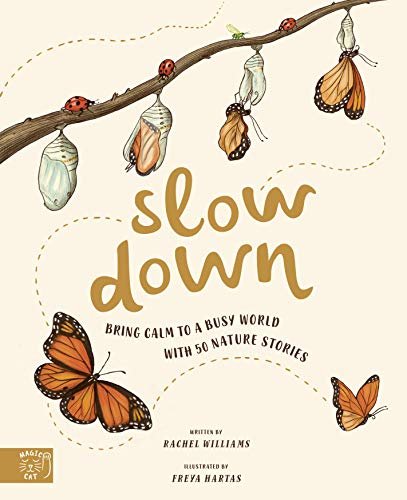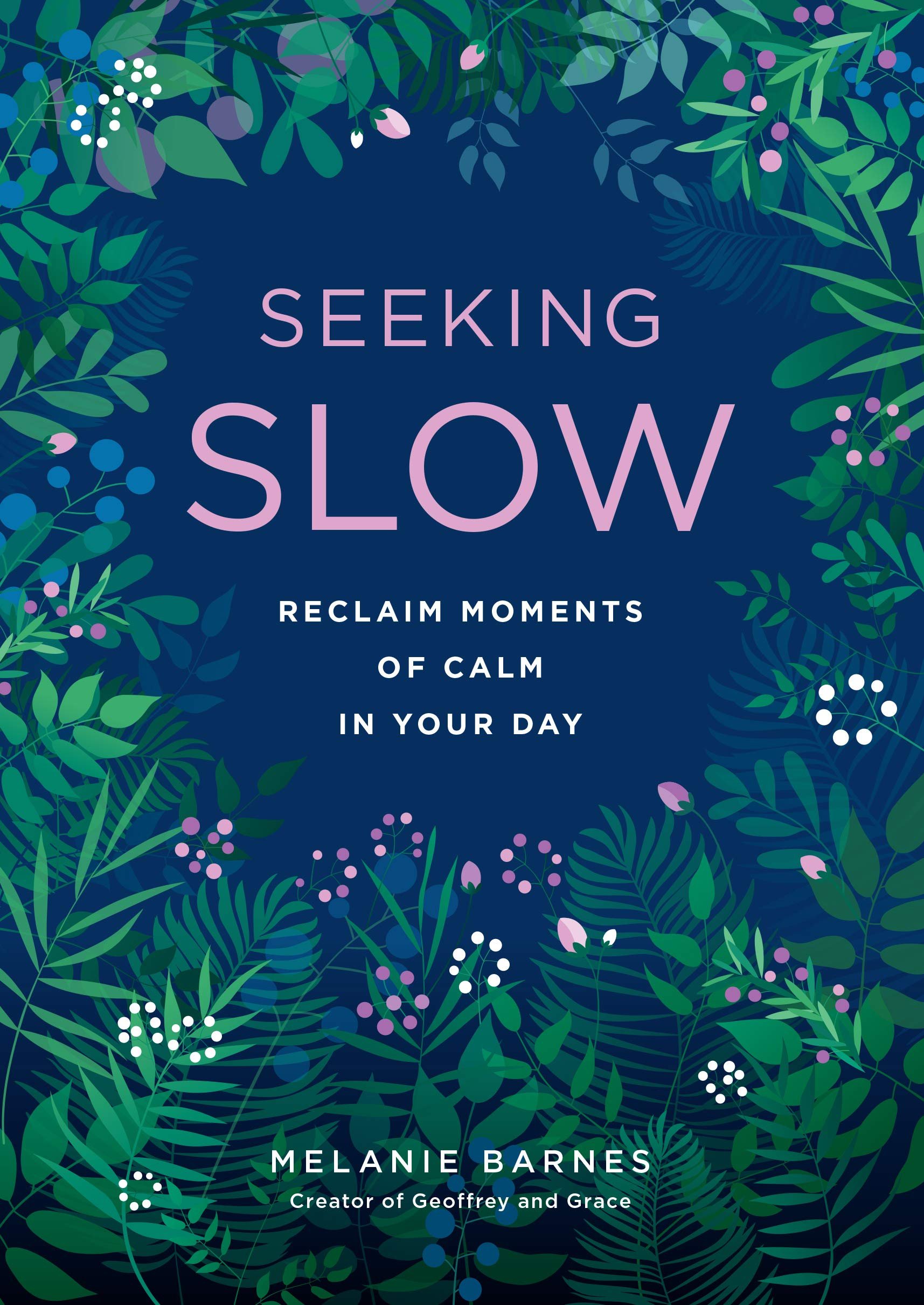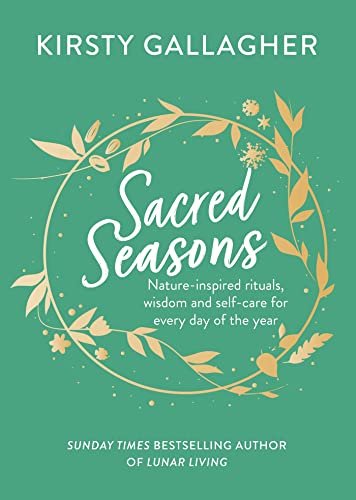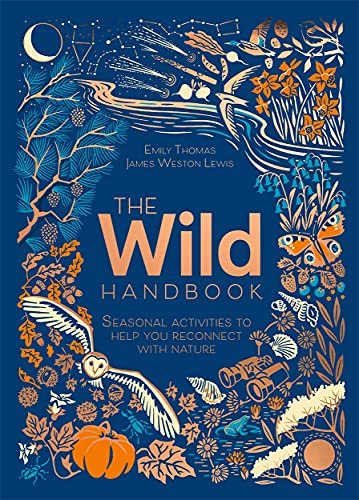Rekindling a Seasonal Lifestyle
From my kitchen window, I see our garden wall. It's rendered white with concrete hats on the top of two pillars which form a gateway from the patio to the garden beyond. It's nothing special, that wall, but it provides me with an opportunity. On it I put a plant pot with whatever is in bloom, alongside a saucer of bird seed. Right now lime green Hellebores hang their heavy heads as they are buffeted by the late winter wind. A male and female blackbird dance from wall to saucer to pot, picking out the mealworms and sunflower seeds before a dumpy, waddling wood pigeon blocks their path. He cooes to his mate (hidden in the holly close by) of the treasures in the dish. This is how I stay connected with the seasons; a simple plant pot and a little saucer of seed. It's not hours spent every day walking through woodland or documenting the weather (although this is a useful thing too.) It is by pausing, observing, and wondering at the marvel of nature, just a little, every single day. To stop and notice, to look and feel and be reminded that there is a rhythm outside which we may try to dictate for our own lives, but which can not be wielded. I reinforce that rhythm with the opening of the kitchen door, wind now buffeting me and the angry call of birds who have had their breakfast interrupted filling my ears. It is the first of March and these happy sights signal that our English winter is creeping to a close. A saucer and a plant pot and a moment of pause. It's not too much to ask, so why is there such a disconnect to living a seasonal life?
Why seasonality matters
The message of a sustainable life has been growing in regularity this past decade, it feels. The urgency of the climate crisis is seeping into daily lives, subtly if you're not looking, more fiercely if you are. The 5p plastic bag charge, the metal cages for soft plastics outside the big supermarkets, reality TV endorsing secondhand fashion, taps in airports for refills - all are here when previously they were not. Mainstream shops now sport the word 'eco' on their displays cheek-by-jowl with every day necessities (whether the labelling is accurate or not is a discussion for another day). This is more than the introduction of at-home recycling collections. Electric cars were once the stuff of dreams and now I see them (though may not hear them) every single day. Sometimes, sadly, it is not so subtle. On our small island we are forced to feel the changes even if it appears with curious amusement or sudden (forgetful) panic; milder springs, flash flooding and baking summers have all occured since my children were born. Couple that with the energy and cost of living crisis we are experiencing right now, it feels even more urgent to reconnect with seasonal living, not just for the planet but for our own health.
How things have changed
In Isabella Tree’s book Wilding, the return of nature to a British farm (Pan Macmillan, 2019) she provides a timeline of changes which create consquential impact to the Knepp estate. In the first chapter of the book, Tree explains broadly the impact the war and the Dig for Victory campaign had on farming in this country, where ‘Fallow land came to be considered wasted land.’ (p.19) Where self sufficiency and feeding ourselves were paramount to daily life (and survival), women's lives were greatly shaped by their capacity to grow and cook. Think about a time where there was no weekly food shop, because fridges were not mainstream, and where life revolved around food. As a child born in the 80s, it is hard to imagine, and as supermarkets and refrigeration took a centre place in our lives, so too, it feels, did the loss of seasonal living. No longer was our survival determined by the weather and seasonal abundance when abundance could be shipped in from overseas every day of the year. Our lives - and our seasons - were manipulated by the law of supply and demand.
The demise of a seasonal lifestyle
Humans are intrinsically self-centred. It is in our genes to ensure we remain at the top of the food chain by accruing what we need to survive. But as we have evolved, the gap between need and want has widened, widened so greatly that the question of what we truly need to live is no longer visible. Desire drives it. Society reinforces it. Industry feeds it. But we are not machines that must produce and achieve every minute of every day (but with our fluorescent lighting and shop online anytime access, it is hard to remember the difference between days and nights sometimes.). It's ingrained in us, through education and societal expectation, to keep pushing forward, always accruing more. This is unsustainable living, every day forced by a thousand choices for a thousand different decisions. I find this exhausting. Perhaps it is my nature, to be overwhelmed and fatigued by incessant multiple choice, but I need something to guide me through those relentless waves: seasonality (and minimalism) provides the rudder to help me navigate them.
Seasons come, seasons go
Our lives - and our seasons - were manipulated by the law of supply and demand
Seasonality, motherhood and countercultural choices
Whilst nature dictates, through weather and it's chain reaction, a pattern of changes we identify as seasons, we humans have our own seasons too. These seasons are written most commonly by and about women because we live, every month, in a cycle we can not change (not without medical intervention anyway). Here I wish to acknowledge the change women experience when they become mothers which affects every aspect of their life - physical, mental, emotional, and financial. These changes are real, even if we only quietly acknowledge them with every milestone we see our children meet. With every birthday, each increase in independence, their successes and failures, all these ‘microseasons’ lead to the moment when our children leave home, womens’ daily lives are driven by forces (most often) outside of their control. There seems always so much to do. My children are just seven and four, where the days are long but the months are short and I grieve the babies they once were as I celebrate the people they are becoming. To stay present and grounded and curious enough to pay attention to the season of life we are currently experiencing takes practice, I have found. It is only possible when we pay attention to the present and I, personally, can not do that if I have a schedule too tighlty filled. I covet time more than any wordly possession.
As a mother, to embrace a self-sustaining, fully seasonal lifes means I face a unique challenge. Why? Because it is having to make choices for my children's futures, an experiment if you will, which goes against my maternal instinct to give my children all that I can with what is available to us. And what is available is a lot. Food alone poses quite the moral conundrum: the five-a-day, healthy lifestyle that I grew up aware of, which instinctively I want to give my children, is a tricky reality when our UK climate isn't conducive to crops our fussy eaters enjoy in deep midwinter. It is the perfect storm for the guilt of motherhood. (I know I won't be alone in this.) Take with today's hand only to give away what will come for their tomorrows. And if the shelves in the supermarket are to be believed, it means seasonal living is now a countercultural choice. That truth is a hard one to swallow and so, like with so many parenting decisions, compromise becomes my companion once more and I seek ways to offset the unbalanced scales. Seasons come, seasons go, so it seems the art comes in paying attention, embracing what is and letting go off that which can not be changed.
consumption and seasonal living
Intrinsically, seasonal living is mindful consumption. It is about paying attention to when we have abundance and when we do not, and choosing to be mindful of that in our everyday choices. Some of these choices are easy; it's dried flowers in winter and seasonal flowers come spring. It's knowing that British asparagus starts with St George's Day, and fingers are stained purple from picking blackberries as children return to school. It's having a seasonal wardrobe, keeping what I need for those months and storing carefully what I don’t, ready for when the seasons turn once more. It helps me with meal planning just as much as it helps with choosing what clothes to wear and what things to bring into my home. I lean on the seasons first, whenever and wherever I can. Importantly though it is also in knowing and accepting that rest is as important as action, in taking time to enjoy the moments, whether that be in the heat of summer, or on a dark winters night, to recharge and relax both in body and mind.
This is no such thing as a perfect, seasonal life in the same way there is no such thing as a perfect, sustainable life. I am not seeking perfection, only unravelling that which I have learnt with what I can do to keep my impact on this planet low. Today, in this season of my life and this season of the year, I pledge to focus on living the truth of my values and to be the example I wish to set for my children, and others. Seasonality - like sustainability - has to start with curiosity and education and, for me, this has to start at home.
Five books to inspire A seasonal liFE
The Almanac: a Seasonal Guide by Lia Leendertz
From the dust jacket: The Almanac: a Seasonal Guide gives you the tools and inspiration you need to celebrate, mark and appreciate each month of the year in your own particular way. Divided into the 12 months and providing practical information that gives access to the outdoors and the seasons.You may also be interested in her podcast with natural fragrance maker Ffern ‘As the Season Turns’.
Slow Down - Bring Calm to a Busy World With 50 Nature Stories by Rachel Williams. Illustrations by Freya Hartas
From the dust jacket: Slow down long enough to watch a bee pollinate a flower, a butterfly emerge from a chrysalis and bluebells carpet a woodland floor. 50 nature stories that command calm and foster mindfulness. Each story is told frame by frame, with facts and figures on more than 50 different species. Discover the extraordinary in the ordinary
My children and I adore this book and use it repeatedly not only to keep us grounded and centred, but as a great support for some at-home incidental learning.Seeking Slow - Reclaim Moments of Calm in Your Day by Melanie Barnes (of GeoffreyandGrace)
From the dust jacket: Are you being consumed by never-ending to-do lists? Are you working harder and enjoying less? Seeking Slow provides simple ways for you to slow down and reconnect with yourself, your family, and your surroundings—while finding joy in doing so.
I read this book back in 2020 and have since gifted it to friends who have shared with me their struggles and burnout, and desire for change.
Sacred Seasons: Nature-inspired rituals, wisdom and self-care for every day of the year by Kirsty Gallagher
From the dust jacket: Do you want to live a life with more meaning, purpose and connection? In this inspirational handbook, moon mentor, soul alignment and spiritual coach, Kirsty Gallagher, takes us through the year season by season to help us reconnect with nature. Sacred Seasons shows us how to find balance and a deep connection with the seasons, the astrological cycles and the lunar phases in order to live well and thrive.
The Wild Handbook: Seasonal activities to help you reconnect with nature by Emily Thomas. Illustrations by James Weston Lewis
From the dust jacket: Organised by season, The Wild Handbook provides a thoughtful collection of activities to get you back in touch with nature and improve your physical and mental wellbeing. It's an antidote to the stresses of modern life - activities include stargazing, wild swimming, various seasonal crafts, forest bathing, foraging and filling your home with natural materials and air purifying plants.
Before you go…
Did you enjoy reading this article? Why not take a look at my other free stories on sustainable living by clicking here. If you find value, inspiration or are galvanised by any of my posts here, I would be so grateful if you could buy me a coffee to help me cover the running costs of the website. I do so desperately want to continue writing for you!
Bye for now,
Laura
x

